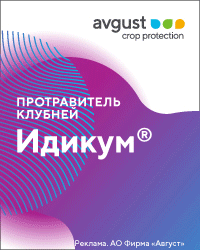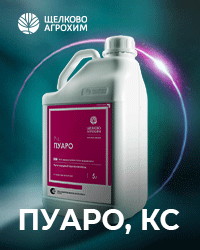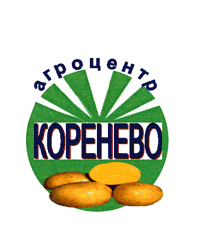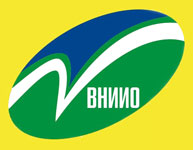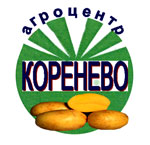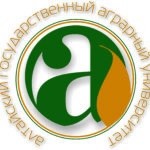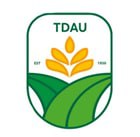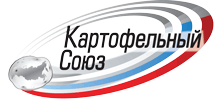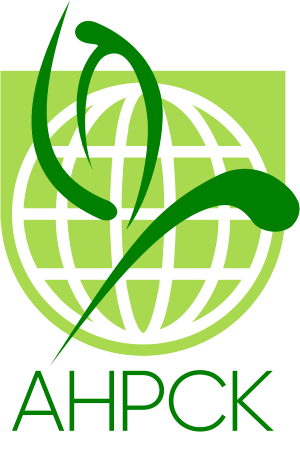UDC 664.8
https://doi.org/10.25630/PAV.2025.99.97.003
Yankovskaya V.S., Dunchenko N.I.
The article presents the results of assessing the prospects of enriching food with cryopowders using the example of yoghurts with pumpkin, turnip and carrot cryopowders. The work used elements of qualimetric forecasting: expert qualimetry, an information matrix model, the author's qualimetric scale, as well as standard methods for determining vitamins C and K, carotene; the content of trace elements was determined on a two-beam atomic absorption spectrometer Shimadzu AA-7000. The article provides scientific evidence for the choice of the type of drying and degree of grinding of vegetable raw materials for yogurt enrichment. It has been established that the most preferred type of vegetable raw materials in yogurt production technology in terms of adaptability and the possibility of forming a set of requirements for finished products enriched with functional food ingredients (FPI) is cryopowder (40 points), followed by freeze–dried powder (31 points). The results of a study of the FPI content in pumpkin, turnip and carrot cryopowders showed that the introduction of a small amount of cryopowders can ensure the functional properties of products: 15% of the recommended daily intake of vanadium is provided by the introduction of 0.23, 0.28 and 0.61% of pumpkin, carrot and turnip cryopowders, respectively; silicon – 0.54, 1.33 and 2.20% of turnip and pumpkin cryopowders. and carrots, respectively; carotenes – 0.72 and 2.43% of carrot and pumpkin cryopowders, respectively; vitamin C – 4.82% of turnip cryopowder. Evaluation of the taste compatibility of yogurt samples with cryopowders showed that the yogurt base with cryopowders received a higher score compared to the control, and the highest scores were obtained by yogurt samples enriched with pumpkin (1.4%), turnip (4.9%) and carrot (2.2%) cryopowders. These samples had a pronounced rich taste and aroma of the introduced vegetables, a thicker consistency and the absence of syneresis, and samples with pumpkin and carrot cryopowders had a characteristic color. A method of applying cryopowders in the production of yogurt is proposed – adding pre-mixed cryopowders with pasteurized cream or milk to a fermented yogurt clot, followed by mixing and bottling in consumer containers. The results obtained show the prospects of using the studied cryopowders as sources of FPI in the technologies of fortified dairy products, as well as as natural thickeners and flavor, aroma and color-forming agents.
Key words: cryopowders, vegetables, pumpkin, turnips, carrots, functional food products, enrichment
- Kodentsova V.M., Risnik D.V. Fortified dairy products as a promising carrier of micronutrient deficiencies in the Russian diet. Dairy industry. 2021. No8. Pp. 10–13. DOI 10.31515/1019-8946-2021-08-10-13. (In Russ.)
- Belyakova Z.Yu., Makeeva I.A., Stratonova N.V. [et al.]. Role Of Organic Products In The Implementation Of The State Policy Of Healthy Nutrition In The Russian Federation. Foods and Raw Materials. No6(1). Pp. 4–13. DOI 10.21603/2308-4057-2018-1-4-13.
- Yankovskaya V.S. Designing cottage cheese products for youth nutrition. Dairy industry. 2007. No12. P. 71–72. (In Russ.)
- Davidovich E.A. Food quality and nutrition culture. Environmental safety in agriculture. Abstract journal. 2010. No4. Pp. 1149. (In Russ.)
- Dunchenko N.I., Yankovskaya V.S. A new approach to developing the quality of yoghurts with functional ingredients. Food Processing: Techniques and Technology. 2022. Vol. 52. No2. Pp. 214–221. DOI 10.21603/2074-9414-2022-2-2357.
- Chandan R.C, A. Gandhi, N.P. Shah Yogurt: Historical background, health benefits, and global trade. In Yogurt in health and disease prevention / R.C. Chandan. Academic Press. 2017. Pp. 3–29. DOI 10.1016/B978-0-12-805134-4.00001-8
- Yankovskaya V.S., Dunchenko N.I., Voloshina E.S. [et al.] Improving the quality of functional fish products based on management and qualimetry methods. IOP Conference Series: Earth and Environmental Science, Voronezh, 26–29 February. 2020. Voronezh, 2021. Pp. 062001. DOI 10.1088/1755-1315/640/6/062001.
- Hachak Yu., Gutyj B., Bilyk O. [et al.] Effect of the cryopowder «Amaranth» on the technology of meolten cheese. Eastern-European Journal of Enterprise Technologies. 2018. Vol. 1. No. 11(91). Pp. 10–15. DOI 10.15587/1729-4061.2018.120879.
- Dunchenko N.I., Shchetinin M.P., Yankovskaya V.S. Product quality management. The food industry. For Masters. St. Petersburg. Lan Publishing House. 2018. 244 p. (In Russ.)
- Yankovskaya V.S., Dunchenko N.I., Kuptsova S.V. [et al.]. Formation and prediction of the quality of cottage cheese in conditions of uncertainty. Cheese and butter making. 2021. No6. Pp. 34–36. DOI 10.31515/2073-4018-2021-6-34-36. (In Russ.).
- Yankovskaya V.S. Scientific substantiation of the methodology of quality assessment, forecasting and traceability. The quality of human existence: ways of development and forecasting. Moscow. Print24 Publishing House. 2020. P. 139-166.
- Gubsky S., Artamonova M., Shmatchenko N. [et al.] Determination of total antioxidant capacity in marmalade and marshmallow. Eastern-European Journal of Enterprise Technologies. 2016. Vol. 4. No11(82). Pp. 43–50. DOI 10.15587/1729-4061.2016.73546.
- Kas'yanov G.I., Lomachinskii V.V. Production and use of cryopowders from vegetables and fruits. News of higher educational institutions. Food technology. 2010. No2-3(314-315). Pp. 64–65. (In Russ.)
PDF(Rus)
For citing: Yankovskaya V.S., Dunchenko N.I. Fortification of food products with cryopowders from vegetable crops. Potato and vegetables. 2025. No6. Pp. 36-40. https://doi.org/10.25630/PAV.2025.99.97.003 (In Russ.).

